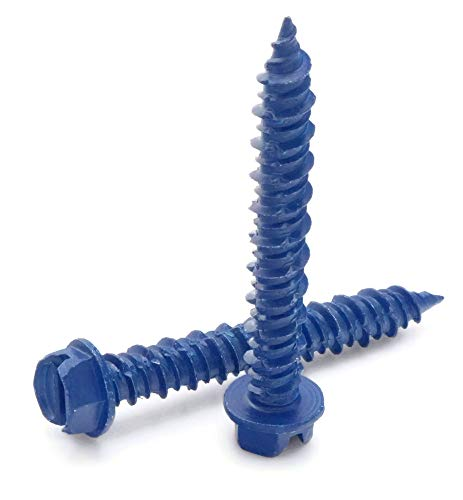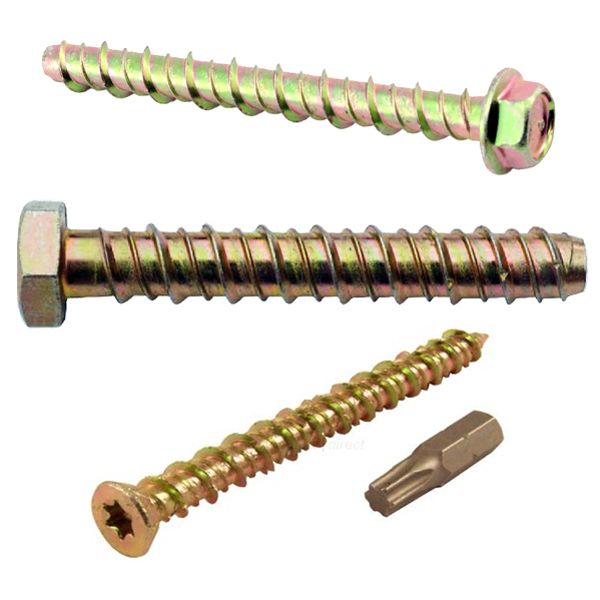Masonry Screw
A Masonry Screw, also known as a Concrete Screw or Expansion Screw, is a specialized type of fastener designed for securing items to masonry, concrete, or other hard, solid materials.
Key features of a Masonry Screw include:
Threaded Shaft:
The shaft of a masonry screw has a coarse, aggressive thread pattern.
This thread design allows the screw to cut into and grip the solid masonry material.
Expansion Mechanism:
Masonry screws have an expansion mechanism, typically in the form of a split or slotted sleeve around the shaft.
When the screw is driven into the pre-drilled hole, the expansion mechanism creates a tight, secure grip within the hole.
Hardened Steel:
Masonry screws are usually made from hardened, corrosion-resistant steel, such as stainless steel or case-hardened steel.
This ensures the screw can withstand the high stresses of being driven into dense, solid materials without breaking or deforming.
Head Design:
The head of a masonry screw is often a flat, countersunk (CSK) design or a hex head.
This allows the screw to sit flush with the surface or accept a wrench/socket for installation.
The key benefits of Masonry Screws include:
Secure Anchoring: The expansion mechanism and coarse threads provide a very strong, vibration-resistant hold in masonry and concrete.
Versatile Applications: Masonry screws can be used to fasten a wide range of items, such as anchors, brackets, and fixtures, to solid surfaces.
Durable Performance: The hardened steel construction and corrosion resistance ensure long-lasting performance, even in harsh environments.
Easy Installation: Masonry screws require pre-drilling a hole, but the expansion mechanism allows for a secure, reliable connection.
Masonry Screws are commonly used in construction, renovation, and industrial applications where heavy-duty anchoring to concrete, brick, or stone is required.




